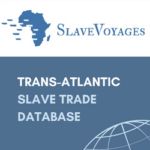Millions of tweets and millions of state documents. Intimate oral histories and international radio addresses. Ancient pottery and yesterday’s memes. Historians have access to this immense store of online material for doing research, but what else can we do with it? In Spring 2018, graduate students in the Public and Digital History Seminar at UT Austin experimented with ways to make interesting archival materials available and useful to the public; to anyone with access to a computer. Over the Summer, Not Even Past will feature each of these individual projects.
Slave passes were an early form of racialized surveillance, small pieces of paper with the power to decide where black men and women could travel, who they could meet, and whether they might be subject to violence. Digitized by Galia Sims, The documents in “Guards and Pickets: Paperwork of Slavery” provide a glimpse into the paperwork created to control the movement and relationships of the enslaved, like passes, jail fees, marriage certificates, patrol invoices.
More on Sims’ project and The Public Archive here.
You may also like:
The Price for Their Pound of Flesh by Daina Ramey Berry
Missing Signatures: The Archives at First Glance by Alina Scott
The Illegal Slave Trade in Texas, 1808-1865 by Maria Hammack



